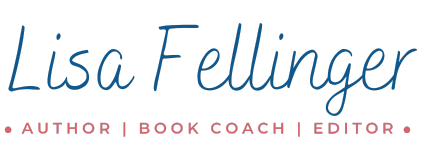Writing with Confidence Doesn’t Mean You Never Struggle with Doubt
One of the biggest struggles writers face in the creative process is self-doubt. Self-doubt can take many forms for writers: imposter syndrome, questioning your story premise, believing you’re writing isn’t “good enough,” etc. These worries are common for writers and can arise at any point in the writing process and at any stage of our writing careers. And when I talk with writers about writing confidently, they often question how that’s possible when these thoughts continue to creep into their minds.
But the truth is, writing with confidence doesn’t mean you never experience self-doubt. Self-doubt is natural in the creative process. It’s natural to doubt our abilities and our choices when we’re working toward a challenging goal, such as writing a book. But confident writers show up despite the self-doubt. They have faith in themselves that when those thoughts creep in, they’ll be able to overcome them and keep writing anyway.
They Myth of the Always Confident Writer
One of the reasons self-doubt creates such a hold on writers is because of the lies we tell ourselves about those thoughts. When we experience self-doubt, not only are we up against those negative thoughts, but the next step is often this: we tell ourselves that real writers don’t question their abilities. Real writers come to the page and know what to write and how to proceed. They don’t struggle with these kinds of thoughts. So, if we are struggling with them, that must mean we’re not real writers.
(Read More: I Am a Writer: Owning the Title)
But the only reason it appears this way from the outside is because we’re not in other writers’ heads. We only see the end results—the published books, the agent deals, the rave reader reviews. We don’t see the inner battles they may have fought along the way to those victories.
It makes sense writers don’t always share these things in public spaces. After all, as humans in general, we don’t tend to share our struggles publicly. As we’re often reminded, social media is a feed of highlight reels. We don’t tend to see the tough moments, and it can be easy to assume they simply don’t exist for others as they do for us.
But when writers are together, either in person or in online communities, I find that once one person opens up about their struggles with self-doubt, others chime in. Even if they’re not experiencing it at the moment, they have examples from the past when they did. And even those writers who seem to have it all figured out from the outside looking in often share their own battles with self-doubt and imposter syndrome. Because even success doesn’t always quiet those thoughts.
The Role of Doubt in the Writing Process
While we may despise it, self-doubt does have a purpose in the writing process. Doubt is a natural response to anything that feels vulnerable or risky. Our mind believes it to be its job to protect us from negative consequences, so the moment it catches wind of the fact that we’re attempting something that could lead to failure, it tries to stop us, or at the very least, force us to pause and examine if this is really the best move.
But that pause isn’t always a bad thing. Stepping back for a moment to deliberate whether our story really is working or whether our writing could benefit from some polishing allows us to make smart decisions for our writing careers. Those writers who don’t take a moment to question the strength of their work before pressing send are the ones most often met with harsh critiques and one-star reviews. So, if you’re feeling uncertain about your story’s quality, remind yourself that this is a necessary part of the process. Evaluating your work is essential in ensuring you produce quality stories.
What Confidence Actually Looks Like in Writing
Still, even if we know self-doubt is normal and has benefits, it doesn’t mean we have to like it. But while we often believe that writing confidently means moving through the process without fear, the reality is that confident writers simply choose to make progress despite their fears and doubts.
Writing confidently means showing up again and again to face the blank page, knowing that your first draft is still going to need a lot of work but trusting that you’ll put in that work to make it stronger.
Writing confidently means being vulnerable enough to share your writing with others for critique and reminding yourself that while no one likes to hear criticism of their work, that’s how you become a stronger writer.
Writing confidently means sending out your queries to agents or pressing the publish button on your indie novel and risking rejection but knowing that you gave it everything you had and that someone out there not only needs your story but will love what you’ve written.
Writing confidently means showing up for your dreams even when it feels hard. It means accepting that the negative thoughts and the self-doubt are part of the process and trusting in your abilities and dedication to get you through those moments to reach your goals.
How to Write with Confidence Through Doubt
So, how do we show up for our writing even when we’re experiencing doubt? Here are some mindset shifts and tools you can use to help you on the hard days.
1. Quiet Your Inner Critic with Evidence of Growth or Progress
When those doubtful thoughts arise, counter them—either mentally or by journaling—by finding examples of the progress you’ve already made on your writing journey. For example, if your inner critic is telling you that your writing isn’t good, counter that thought with examples of when your writing was praised. Maybe a teacher once told you your writing was strong, or a critique partner offered positive feedback on your work. Or you might go back and compare some of your earlier writing with your current writing and note the ways you’ve already grown as a writer. After all, writing is a learnable skill if you’re willing to put in the effort, and if you’ve gotten better since you started writing, there’s every reason to believe you can continue to improve from here.
2. Normalize Doubt
Remind yourself that doubt is entirely normal—it’s not something to fight, but something to acknowledge as part of the writing process. All writers, no matter how experienced, face it at some point. Instead of viewing it as a setback, see it as a reminder to pause, reflect on your progress, and identify areas that might still need attention before your project feels complete.
3. Set Realistic Expectations for the Emotional Ups and Downs
Writing is an emotional process, and it’s important to expect a certain amount of fluctuation in your emotional state along the way. Some days, you’ll feel energized and inspired; other days, self-doubt, frustration, or imposter syndrome might take the lead. This doesn’t mean something is wrong—it just means you’re human. Setting realistic expectations for these ups and downs helps you stay grounded and keeps you from interpreting normal struggles as signs that you’re failing.
4. Lean on Your Community
One of the reasons I always encourage beginning writers to find a community of writers they connect with is because having other writers to lean on in moments of self-doubt can be incredibly helpful. As I mentioned earlier, when one writer shares their struggles with self-doubt with other writers, it’s almost guaranteed that others will chime in to commiserate and share their own experiences. Having others to turn to when you’re struggling with these mindset battles can help you to normalize the thoughts and gain confidence to keep going.
(Read More: Why You Need a Writing Community (And How to Find One))
So, while we may not enjoy the self-doubt and negative thoughts that occur throughout the writing process, it’s important to recognize that these are normal and not a sign that we should give up on our writing dreams. Writing confidently does not mean that you’ll never experience these thoughts. It means that you continue to show up for your writing even when these thoughts surface, and you have faith in your abilities to overcome the challenges. Remind yourself that you can write confidently and feel uncertain at times—both can be true.
If this is something you struggle with, I’d invite you to spend some time reflecting on what would change in your writing life if you stopped waiting until you felt 100% confident and ready to begin. Feel free to send me an email with your answers—I’d love to hear from you.





